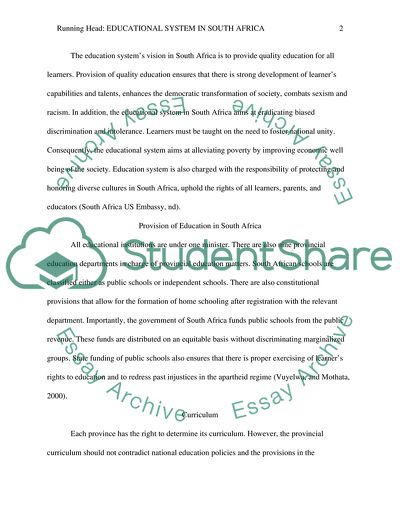Cite this document
(Educational System in South Africa Literature review Example | Topics and Well Written Essays - 1750 words, n.d.)
Educational System in South Africa Literature review Example | Topics and Well Written Essays - 1750 words. https://studentshare.org/education/1782346-research-the-educational-system-of-a-selected-country-see-insturctions
Educational System in South Africa Literature review Example | Topics and Well Written Essays - 1750 words. https://studentshare.org/education/1782346-research-the-educational-system-of-a-selected-country-see-insturctions
(Educational System in South Africa Literature Review Example | Topics and Well Written Essays - 1750 Words)
Educational System in South Africa Literature Review Example | Topics and Well Written Essays - 1750 Words. https://studentshare.org/education/1782346-research-the-educational-system-of-a-selected-country-see-insturctions.
Educational System in South Africa Literature Review Example | Topics and Well Written Essays - 1750 Words. https://studentshare.org/education/1782346-research-the-educational-system-of-a-selected-country-see-insturctions.
“Educational System in South Africa Literature Review Example | Topics and Well Written Essays - 1750 Words”. https://studentshare.org/education/1782346-research-the-educational-system-of-a-selected-country-see-insturctions.


